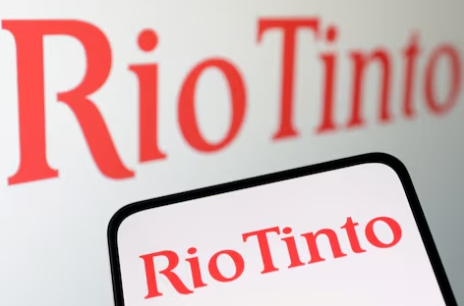
Rio Tinto logo is seen displayed in this illustration taken April 10, 2023
The Jadar project has faced opposition from environmental groups and local residents due to ecological concerns, leading to significant protests in 2022. These protests prompted the Serbian government to cancel Rio Tinto’s exploration licenses, but the Constitutional Court reversed this decision last year, reinstating the licenses.
Blewitt stated: “The last time we went out to market and looked at the budget, it was over 2.55 billion euros ($2.91 billion). So we are currently in the midst of updating that capital cost.” He noted that the project’s strategic status requires compliance with European Union environmental and human rights standards, which will influence the final cost.
Blewitt did not provide a specific timeline or updated cost estimate, as the project still requires a field exploitation license. He explained: “Once we... get the licence, we can then go and update the project schedules and have a look at costing. So I don’t want to give a definitive date.” Originally, production was planned to begin in 2027.
Rio Tinto, a major mining company, has heavily invested in lithium, including its recent $6.7 billion acquisition of Arcadium Lithium in the U.S. and two projects in Chile costing over $1 billion. These efforts align with the growing demand for lithium in electric vehicle batteries, though the market currently faces an oversupply and weaker demand than anticipated. Long-term projections for lithium demand remain optimistic into the next decade.
If completed, the Jadar project could supply 90% of Europe’s current lithium needs. However, local opposition in Serbia remains strong, with some groups threatening to disrupt roads and railways if the project proceeds.
Blewitt emphasized the project’s future steps, stating: “Whatever happens next will involve multiple stages of scrutiny and public consultation.” He added: “It (the project) positions Serbia at the forefront of the green and digital revolution.” The initiative aligns with global efforts in the steel and construction sectors to adopt more sustainable practices.